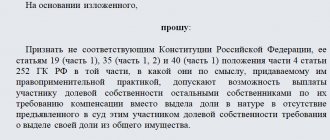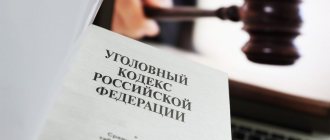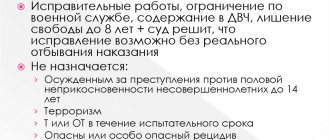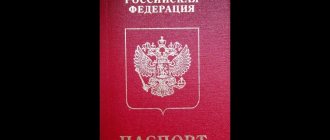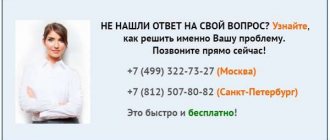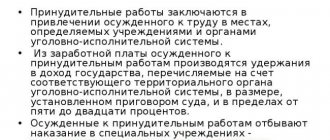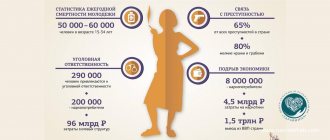The Constitutional Court clarified in what cases interrogation of a lawyer is possible
The Constitutional Court of the Russian Federation issued its second ruling in recent months on a complaint about the illegal interrogation of a lawyer, confirming its position previously expressed on a similar statement (see on Legal.Report here).
The lawyer and his client complained to the Constitutional Court about the unconstitutionality of a number of articles of the Code of Criminal Procedure of the Russian Federation and the law on the Investigative Committee. In their opinion, these norms allow, without a preliminary court decision, operational search and investigative actions to be carried out against a lawyer, including monitoring the lawyer, detaining him, bringing him in for questioning as a witness, as was the case in the applicants’ case, interrogating him in in this capacity and apply other similar measures to him. By its ruling dated April 11, the Constitutional Court indicated that the contested norms do not violate the constitutional rights of the applicants, since they do not imply bringing a lawyer to the investigator for questioning as a witness about the circumstances that became known to him in connection with the provision of legal assistance, without a preliminary court decision.
A week later, on April 17, the Constitutional Court received an additional complaint from the same applicants about the violation of their constitutional rights by the provisions of the same articles of the Code of Criminal Procedure and the law on the Investigative Committee. As noted in the statement, these rules allow calling a lawyer to conduct investigative actions with him as a witness without a preliminary court decision. In addition, the applicants believe that when considering the possibility of questioning a lawyer as a witness, the court must establish whether there is consent to the specified investigative action of the person to whom the lawyer provided, is providing or will provide legal assistance.
The Constitutional Court, referring to the first ruling in the applicants’ case, reminded the authors of the complaint of the procedural regime, within the framework of which it is possible to carry out investigative actions and operational investigative measures against a lawyer. Thus, the law on advocacy establishes that a lawyer cannot be summoned and questioned as a witness about circumstances that became known to him in connection with an application to him for legal assistance or in connection with its provision. Corresponding norms are established in Part 3 of Art. 56 Code of Criminal Procedure of the Russian Federation.
However, such guarantees apply only to those relations between suspects and accused persons with their lawyers that do not go beyond the scope of providing professional legal assistance in the manner prescribed by law. That is, they are not associated with violations of a criminally unlawful nature either on the part of the lawyer, or on the part of his client, or on the part of a third party.
If, taking into account the above provisions, interrogation of a lawyer as a witness is possible, in accordance with paragraph 3 of Art. 8 of the Law on Advocacy, investigative actions are allowed only on the basis of a court decision.
The provisions of the contested norms of the Code of Criminal Procedure and the law on the Investigative Committee do not exclude the need for law enforcement officials to carry out the entire range of measures to protect the rights and legitimate interests of individuals and organizations provided for by the criminal procedure law.
As for the arguments of the additional complaint about the need for the court to clarify the question of whether such an investigative action as interrogation of a lawyer has the consent of the principal, the Constitutional Court stated the following. By virtue of the provisions of Part 3 of Art. 56 of the Code of Criminal Procedure of the Russian Federation, interrogation of a lawyer about the circumstances that became known to him in connection with the provision of legal assistance is possible only in some cases - in particular, if the lawyer applies for interrogation as a witness with the consent and in the interests of the suspect, accused, or if interrogation as a The witness is interceded by a lawyer with the consent of the person to whom he provided legal assistance.
As follows from the case materials, the lawyer did not apply for his interrogation as a witness in the client’s criminal case, and therefore the consent of the accused and other persons to whom he provided legal assistance to such interrogation was not ascertained. At the same time, the Constitutional Court noted that the applicants in their additional complaint actually propose to make reasonable, from their point of view, changes to the criminal procedural legislation, which is not within the competence of the Constitutional Court.
In this regard, the Constitutional Court stated that the additional complaint does not meet the criterion of admissibility of appeals to the court, and therefore cannot be accepted for consideration.
Approved by the Decision of the Council of the Bar Association of St. Petersburg (Minutes No. 8 of May 29, 2013
INFORMATION LETTER addressed to a law enforcement agency that has unreasonably summoned a lawyer to question him as a witness. Clauses 2 and 3 of Part 3 of Article 56 of the Criminal Procedure Code of the Russian Federation prohibit the questioning as witnesses of lawyers performing the procedural function of defense attorneys about circumstances that have become known to the defense attorney, in in connection with applying to him for legal assistance or in connection with its provision, as well as interrogating lawyers about the circumstances that became known to them in connection with the provision of legal assistance.
Paragraph 2 of Article 8 of the Federal Law “On Advocacy and the Bar in the Russian Federation” establishes the rule according to which “A lawyer cannot be summoned and questioned as a witness about circumstances that have become known to him in connection with an application to him for legal assistance or in connection with with its provision."
Paragraph 6 of Article 6 of the Code of Professional Ethics for Lawyers, which is an integral part of Russian legislation regulating the practice of law, contains a rule prohibiting a lawyer from “giving testimony about circumstances that have become known to him in connection with the performance of his professional duties.” These legislative prohibitions are dictated by the need to ensure in practice the principle of absolute confidentiality of information communicated to lawyers by their clients in connection with the practice of law.
Exploring issues related to ensuring attorney-client privilege. The Constitutional Court of the Russian Federation has repeatedly given clarifications that are important for law enforcement practice on this issue.
Thus, in 2000, the Constitutional Court of the Russian Federation, citing the requirements of the International Covenant on Civil and Political Rights. Convention for the Protection of Human Rights and Fundamental Freedoms and the Code of Conduct for Lawyers in the European Community, it is stated that the legal norms contained in the Russian criminal procedure law and legislation on the legal profession “involve ensuring the confidentiality of information that is received by a lawyer... in the course of professional activities, within the framework of relationship with the client... and which... is not subject to disclosure and therefore cannot be the subject of testimony" (Determination of the Constitutional Court of the Russian Federation dated July 6, 2000 No. 128-0 on the complaint of citizen V. V. Parshutkin about the violation of his constitutional rights and freedoms p. 1 part 2 of article 72 of the Code of Criminal Procedure of the RSFSR and articles 15 and 16 of the Regulations on the Bar of the RSFSR (adopted based on the report of judge A.L. Kononov).
In 2003, in a ruling issued on the complaint of citizen G.V. Tsitskishvili, the Constitutional Court of the Russian Federation clarified that in some cases it is not excluded that a lawyer may report to the law enforcement agency some information confidentially communicated to him by the client in connection with his professional activities. In the aforementioned Determination, the Constitutional Court of the Russian Federation indicated that the criminal procedural law in its constitutional legal interpretation, “releasing a lawyer from the obligation to testify about circumstances that have become known to him in cases where this is caused by a reluctance to disclose confidential information...at the same time, does not exclude his right to give relevant testimony in cases where the lawyer himself and his client are interested in the disclosure of certain information" (Determination of the Constitutional Court of the Russian Federation dated March 6, 2003 No. 108-O on the complaint of citizen G.V. Tsitskishvili for violation of his constitutional rights, paragraph 2 Part 3 of Article 56 of the Code of Criminal Procedure of the Russian Federation (adopted based on the report of judge N.V. Seleznev).
Ruling of the Constitutional Court of the Russian Federation dated July 16, 2009 No. 970-0-0 on the refusal to accept for consideration the complaint of citizen AM Gavrilov about the violation of his constitutional rights, clause 3, part 3, article 56 of the Code of Criminal Procedure of the Russian Federation).
In 2009, the Constitutional Court of the Russian Federation, having considered the complaint of citizen AM Gavrilov, came to the conclusion that “the court has the right to ask the lawyer questions regarding violations of the criminal procedure law that have occurred, without examining the information confidentially entrusted to the lawyer, as well as other information about circumstances [of the case], which became known to him in connection with his professional activities" (Resolution of the Constitutional Court of the Russian Federation of November 29, 2010 No. 20-P in the case of verifying the constitutionality of the provisions of Articles 20 and 21 of the Federal Law "On the detention of suspects and accused of committing crimes" in connection with complaints from citizens D.R. Baranovsky, Yu.N. Volokhonsky and I. V. Plotnikov).
The Resolution of the Constitutional Court of the Russian Federation dated November 29, 2010 No. 20-P reflected the principled position of the court that “[A necessary component of the right to use the assistance of a lawyer (defender) as one of the fundamental human rights... is to ensure the confidentiality of information communicated to the lawyer by his client and subject to protection,” and a deviation from this rule “would create the preconditions for the unlawful restriction of the right to receive qualified legal assistance, distortion of the very essence of the right to defense, as well as ... for the use of information confidentially entrusted by a person for the purpose of his own defense only to a lawyer, against the will this person for other purposes, including as evidence against himself.”
Thus, the Constitutional Court of the Russian Federation, recognizing the unconditional legal value of protecting at the law enforcement level the confidentiality of information obtained by a lawyer in the course of professional activity, gave explanations allowing:
1) the possibility of a lawyer voluntarily reporting confidential information entrusted to him to law enforcement agencies in the case where the lawyer and his client are interested in disclosing this information: 2) the possibility of interrogating a defense lawyer regarding violations of criminal procedure law without his consent and the consent of his client. Thus, the Constitutional Court of the Russian Federation emphasized the particular importance of law enforcement agencies obtaining (1) information that can effectively ensure the constitutional right to defense, as well as (2) information about violations of the criminal procedural law, which in a rule-of-law state cannot be the subject of attorney-client privilege. The Council of the Bar Association of St. Petersburg, in order to ensure that lawyers strictly protect information included in the concept of attorney-client privilege, recommends that lawyers appear when summoned by law enforcement agencies to question them as witnesses only in cases where the law enforcement agency has brought to their attention information about the subject (and informative limits) of the upcoming interrogation, and when from the information received it follows that during the interrogation the law enforcement agency will not touch on circumstances included in the legally protected subject of attorney-client privilege.
In cases where the subject of the upcoming interrogation is violations of the criminal procedural law, the establishment of which may be procedurally beneficial for the client, the lawyer must appear when summoned by the law enforcement agency to interrogate him as a witness, having previously notified the client about the upcoming interrogation and advised the latter on the possible positive consequences establishment by the law enforcement agency of facts of violation of the criminal procedural law. In cases where the issue being investigated about violations of the criminal procedural law, in the opinion of the lawyer or his client, can be interpreted to the detriment of the client (or the lawyer himself), the latter does not have the right to testify on the procedural violations under investigation as a witness and, referring to the provision of the article 51 of the Constitution of the Russian Federation, must refuse to testify.
During the interrogation of a lawyer regarding violations of the criminal procedural law, the information provided by the lawyer should be limited exclusively to information known to the lawyer about violations of the criminal procedural law, the identification of which may be beneficial for the client. In this case, the circumstances characterizing a particular violation of the criminal procedural law must be interpreted by the lawyer for the benefit of the procedural function he performs (defender, representative of the victim or civil plaintiff, lawyer, witness interrogated in the case).
Any other questions emanating from the law enforcement agency, which directly or indirectly may lead to the disclosure of information included in the subject of attorney-client privilege, must remain unanswered with reference to Part 2 of Article 51 of the Constitution of the Russian Federation: Clauses 2 and 3 of Part 3 of Article 56 of the Criminal Procedure Code Code of the Russian Federation: paragraph 2 of Article 8 of the Federal Law “On advocacy and the legal profession in the Russian Federation” and paragraph 6 of Art. 6 of the Code of Professional Ethics for Lawyers.
Lawyers summoned for questioning as a witness (in cases where information has been received from the law enforcement agency that the upcoming questioning will not relate to the subject of attorney-client privilege). The Council of the St. Petersburg Bar Association recommends using the right provided for in paragraph 5 of Article 189 of the Code of Criminal Procedure of the Russian Federation. to invite another lawyer to participate in the interrogation, who must act in this case as a legal (and corporate) guarantor of attorney-client privilege during the interrogation of his colleague as a witness.
It must be taken into account that the interrogation of a lawyer as a witness is a circumstance that precludes his further participation in criminal proceedings as a defense attorney. This circumstance should warn law enforcement agencies from insufficiently motivated summons of lawyers to question them as witnesses (even in cases where the subject of questioning is circumstances related to violations of the criminal procedure law). Interrogation of a lawyer as a witness regarding violations of criminal procedure The law is permissible, in the opinion of the Council of the Chamber of Lawyers, only in extreme cases, in the absence of other legally permissible methods of proving violations of the criminal procedural law committed in the case.
As for the increasing practice of using interrogations of lawyers performing the function of defense attorneys in criminal cases as possible sources of information about circumstances protected by attorney-client privilege, the Council of the Bar Association considers such practices as violations of generally recognized norms of international law, unacceptable in a rule-of-law state, which is the Russian Federation. Federation.
E.V. Semenyako, President of the FPA RF
We notify employees about possible calls to the tax office
All employees are informed that tax authorities are currently carrying out planned control activities, and therefore summonses (subpoenas) for questioning of company personnel are possible.
In order to protect the rights and interests of employees, as well as to prevent pressure on them at the tax office, they will be provided with a lawyer at the company’s expense.
The lawyer will tell them:
- How is the interrogation going?
- how to prepare for it;
- what they may ask;
- What rights and responsibilities do the witness and the inspector have?
In addition, the lawyer will accompany the employees during the interrogation itself. Therefore, if one of the staff receives a subpoena, you must immediately notify your supervisor about this.
In a similar way, it is worth warning those employees of the organization who have already resigned, who, taking into account the predicted tax risks, may be of interest to the inspectors.
Lawyer as a witness
Two residents of the Yaroslavl region appealed to the Constitutional Court with a complaint about the unconstitutionality of Articles 38, 88, 113, 125 and 152 of the Code of Criminal Procedure of the Russian Federation, as well as part 2 of Article 7 of the law “On the Investigative Committee of the Russian Federation”. The lawyer defended his client, who was accused of two attempted frauds and falsification of evidence in a civil case.
“The Investigative Committee of the Investigative Committee for the Yaroslavl Region filed a petition with the district court for permission to question the lawyer as a witness and conduct a confrontation with him as part of the investigation of the criminal case. The presiding officer came to the conclusion that the purpose of these investigative actions is to verify the involvement of the defense attorney in the crime committed by the defendant, and pointed out the need to be guided by the provisions of Chapter 52 of the Code of Criminal Procedure of the Russian Federation on the peculiarities of criminal proceedings in relation to certain categories of persons when prosecuting a lawyer. The request was denied,” says criminal lawyer Dmitry Panfilov.
Based on the investigator's decision, the defender was brought in for questioning without a preliminary court decision. It concerned the circumstances of his submission to the court of a forged copy of the agreement. Previously, the lawyer himself, citing his status as a representative in a civil case and his defense attorney in a criminal case, refused to appear for questioning and give evidence.
“The colleague filed a complaint with the court against the investigator’s decision and against the actions and inactions of law enforcement officers related to his arrest and interrogation. However, the court refused to satisfy the complaint in terms of recognizing the investigator’s decision and the arrest itself as illegal, and otherwise terminated the proceedings on the complaint. Soon, the prosecution’s request to disqualify the defense attorney was granted due to the fact that he is a witness in this trial,” explains criminal lawyer Dmitry Panfilov.
The client and lawyer appealed to the Constitutional Court, demanding that the provisions of a number of articles of the Code of Criminal Procedure of the Russian Federation and the law on the Investigative Committee be declared unconstitutional. In their opinion, these norms do not comply with the law, since they allow, without a preliminary court decision, operational search and investigative measures to be carried out against a lawyer, in particular, to monitor the lawyer, detain him, bring him in for questioning as a witness, interrogate him in this capacity , apply other similar measures to him.
“Having reviewed the complaint, the Constitutional Court noted that a necessary component of the right to use the assistance of a lawyer is ensuring the confidentiality of information, which is not a privilege, but a guarantee of the legitimate interests of his client, subject to protection by virtue of the Constitution of the Russian Federation. The interrogation of a lawyer as a witness, especially associated with his forced bringing, carried out in violation of these rules without a preliminary court decision, creates a real threat to attorney-client privilege,” says criminal lawyer Dmitry Panfilov.
Interrogation at the tax office
When the witness is prepared, the lawyer accompanies him for questioning at the tax office. During the interrogation, the lawyer prevents pressure on the witness , provides psychological support, and also carefully reads the interrogation protocol and seeks to bring it in accordance with the testimony provided by the witness.
The testimony of a witness can be quite long and detailed; tax authorities, as a rule, enter them into the protocol themselves in an abbreviated form and often in a slightly paraphrased form . The meaning and context of the testimony may change as a result, and the loss of essential details may complicate further work on forming the company’s defensive position.
Witnesses, especially representatives of blue-collar professions who do not deal with such events on a daily basis, without information about the company’s tax risks, will not independently bring the protocol into compliance and will not require important details to be reflected for the further protection of the company. Thus, employees appearing for questioning without being accompanied by a lawyer may cost the company significant tax claims in the future.
Author - Denis Savin , lawyer, tax advisor at BGP Litigation.
Position of the Federal Tax Service and the Ministry of Finance
On the participation of a lawyer in the interrogation of a witness at the tax authority
The Ministry of Finance of Russia and the Federal Tax Service of Russia have repeatedly clarified the issues of the procedure for questioning a witness by the tax authority with the participation of his representative. This article provides a detailed analysis of such clarifications.
On the status of a witness representative
In letters dated October 30, 2012 No. AS-3–2/ [email protected] and dated December 31, 2013 No. ED-4–2/ [email protected] the Federal Tax Service of Russia explained that:
– when interrogating a witness, the guaranteed part 1 of Art. 48 of the Constitution of the Russian Federation, the right of everyone to receive qualified legal assistance;
– The Tax Code of the Russian Federation (hereinafter referred to as the Tax Code of the Russian Federation) does not provide an exhaustive list of persons who may participate or be present during the interrogation;
– tax legislation does not limit the rights and obligations of a person accompanying a citizen summoned for questioning by the tax authority in accordance with Art. 90 Code;
– since the legal status of the taxpayer and the witness, according to the Tax Code of the Russian Federation, differs, the power of attorney issued by the witness to the person participating in his interrogation at the tax authority may not be notarized;
– powers of a representative accompanying a person summoned for questioning by the tax authority in accordance with Art. 90 of the Tax Code of the Russian Federation, cannot be documented in documents that deal with the giving of testimony (explanations) on behalf of the witness by his representative;
– interrogation of a lawyer (attorney) instead of a witness is unacceptable, regardless of whether the former has a power of attorney providing for such powers.
Participation of a lawyer in the questioning of a witness is not a vice
In the letter of the Federal Tax Service of Russia dated July 10, 2021 No. ED-4–15/ [email protected] “On the prevention of violations of tax legislation”[1], one of the characteristics of “nominal” taxpayers (not involved in financial and economic activities) was indicated and such: interrogations of persons are carried out in the presence of representatives (lawyers).
After the FPA appealed to the Prosecutor General's Office of the Russian Federation[2], the Federal Tax Service of the Russian Federation adjusted its position. By letter of the Federal Tax Service of Russia dated September 21, 2018 No. ED-4–15/ [email protected] , this negative sign was removed: the words “interrogations of persons are carried out in the presence of representatives (lawyers)” were excluded.
Such a curiosity could be considered a typo (technical glitch), if practice had not shown: interrogation of a witness with the participation of a lawyer is less likely to become evidence of a tax offense by the taxpayer than interrogation without it. If the tax department has an interest in increasing the effectiveness of tax audits (in the form of additional tax revenues to the budget), then an attempt to discredit a lawyer and his client is understandable.
On the right of a taxpayer’s representative to be present at the interrogation of a witness
Letters from the Ministry of Finance of Russia dated October 22, 2015 No. 03–02–07/1/60796 and the Federal Tax Service of Russia dated August 17, 2021 No. EA-4–15/13203 explain that the participation of the taxpayer or his representative during the interrogation of a witness Art. . 90 of the Code is not provided.
The Federal Tax Service considers it no coincidence that the presence of the person being inspected during other tax control activities in relation to him is determined by the relevant articles of the Code. So, for example, Art. 92, 93, 94, 95 of the Code provide for the right of the person being inspected to participate in the inspection of his territory (premises), requesting from him documents necessary for the inspection, seizure of documents and objects, and conducting an examination. Since in Art. 90 of the Code does not directly provide for the participation of the person being inspected during the interrogation of witnesses; the Ministry of Finance and the Federal Tax Service of Russia interpret this as a ban on such participation.
It appears that the legal gap in Art. 90 of the Tax Code of the Russian Federation does not prevent the participation of a taxpayer’s representative in the interrogation of a witness if such interrogation is carried out as part of an on-site tax audit of this taxpayer.
The rule protecting the rights of the taxpayer that is missing in the special norm should be sought in the general norm. By virtue of sub. 8 clause 1 art. 21 of the Tax Code of the Russian Federation, the taxpayer has the right to be present during an on-site tax audit. If the interrogation of a witness is carried out as part of an on-site tax audit of the taxpayer, then the taxpayer has the right to be present at it in the person of his representatives.
The fact that an on-site tax audit and interrogation of a witness may not be carried out on the territory (premises) of the taxpayer (clause 1 of Article 89 of the Tax Code of the Russian Federation, clause 4 of Article 90 of the Tax Code of the Russian Federation) cannot limit the right of the taxpayer’s representative to be present during this tax control measures.
Some general rights of a taxpayer are additionally conditioned by the existence of grounds and procedures established by the legislation on taxes and fees (subclause 3, clause 1, article 21 of the Tax Code of the Russian Federation). The right of a taxpayer to participate in an on-site tax audit does not provide for such a restriction (subclause 8, clause 1, article 21 of the Tax Code of the Russian Federation).
An example of a legal restriction of a taxpayer’s rights in a special norm is subparagraph. 4 paragraph 7 art. 95 of the Tax Code of the Russian Federation, which directly states that the right of the person being inspected to be present during the examination may be limited by an official of the tax authority (subclause 4, clause 7). This example shows that a special rule can limit the effect of a general rule, but a gap in a special rule cannot.
If we continue the positivist logic of the Federal Tax Service and the Ministry of Finance of Russia, then the lack of special rules blocks the application of other general taxpayer rights provided for in Art. 21 of the Tax Code of the Russian Federation: receive free information from tax authorities about current taxes (subclause 1, clause 1); to carry out joint reconciliation of tax calculations (subclause 5, clause 1); demand that officials of tax authorities comply with tax legislation (subclause 10, paragraph 1), etc. But such an interpretation leads to absurdity: the lack of detail in the implementation of the right leads to the deprivation of the right as such.
Analysis of the arguments against
Let's look at the most popular arguments used by tax officials to deny an audited taxpayer's request to invite his representative (lawyer) to question witnesses questioned as part of his on-site tax audit:
– the taxpayer’s representative (lawyer) is an interested person and he can prevent the witness from giving reliable testimony;
– the witness does not want to testify in the presence of the taxpayer being audited;
– the taxpayer under audit does not have the right to know about the evidence of his offense before the announcement of the plot of the tax charge (tax audit report).
The first argument contradicts the position of the Federal Tax Service of Russia: if a lawyer is not an eyewitness to tax-significant events, he has no right to speak for the witness. The inspector conducting the interrogation has the right to suppress possible interference from the lawyer. Since the interrogation of a witness, as a rule, is carried out on the premises of the tax authority, the inspector conducting the interrogation is authorized to ensure order during its conduct.
The second argument contradicts the principle of reliability of evidence. If a witness tells the truth for public purposes, he should not be embarrassed by the presence of an interested party who might be harmed by the truth. If a witness really does not want to testify in the presence of the taxpayer being audited, then it is necessary to find out the reasons. Does the witness wish to incriminate the taxpayer or certain of his employees? The witness has already been instructed by an unscrupulous tax inspector (sometimes there are such people), and the witness is now embarrassed by the taxpayer’s representative? Other reasons? It seems that, on the contrary, the presence of a taxpayer’s representative will increase the witness’s responsibility for his words and prevent the taxpayer from slandering himself.
The third argument contradicts the principle of openness of tax control measures. The interrogation of a witness is one of these events that cannot be secret or unspoken for the taxpayer. Tax audits, as well as the tax authorities that conduct them, are not subject to the Law on Operational Investigations[3], which allows for the secret collection of information and evidence.
The witness must provide truthful and as accurate information as possible, and the tax authority must record it without distortion. The reliability of a witness's testimony can and should be verified by the court if the taxpayer challenges the results of a tax audit[4]. Consequently, both the tax authority and the witness questioned by it must be prepared for such an audit in the presence of the taxpayer being audited. But the interrogation of a witness by the court may occur after a long time, when the witness may forget some of the circumstances, which may negatively affect the reliability of his testimony.
In this regard, conducting an interrogation in the presence of the taxpayer being inspected should be beneficial to the inspectors: this insures them against the suspicion of the taxpayer and the court of obtaining unreliable testimony (flawed evidence of a tax offense).
Tax control presupposes cooperation and interaction between the auditee and the inspector: the Tax Code of the Russian Federation assumes that the taxpayer will not interfere with his audit. On the other hand, auditors have a legitimate interest in obtaining good-quality evidence of tax-significant events. Without the help of the taxpayer being inspected, the inspector risks sending a subpoena to an irrelevant address or calling in for questioning someone who is not related to the events being established.
In this regard, the participation of the taxpayer being audited in the interrogation of the witness will most likely improve the quality of the evidence and resolve the tax conflict at the pre-trial stage.
Interpretation by the Ministry of Finance and the Federal Tax Service of the Russian Federation of Art. 90 of the Tax Code of the Russian Federation contradicts the rule of paragraph 7 of Art. 3 Tax Code of the Russian Federation
As follows from the text of Art. 90 of the Tax Code of the Russian Federation, it does not regulate the taxpayer’s rights to participate in the interrogation of a witness as part of his on-site tax audit, and sub. 8 clause 1 art. 21 of the Tax Code of the Russian Federation, on the contrary, presupposes such participation.
Letters from the Ministry of Finance of Russia dated October 22, 2015 No. 03–02–07/1/60796 and the Federal Tax Service of Russia dated August 17, 2021 No. EA-4–15/13203 were prepared as responses to requests from taxpayers regarding the interpretation of tax rules. Consequently, law enforcement officials have repeatedly had doubts related to the ambiguity of the legislation on this issue.
If such doubt about the ambiguity of an act of legislation is considered irremovable [5], then by virtue of clause 7 of Art. 3 of the Tax Code of the Russian Federation, it must be interpreted in favor of the taxpayer (tax payer, insurance premium payer, tax agent).
Taking into account the legal principle of resolving such legal conflicts, the legal gap in Art. 90 of the Tax Code of the Russian Federation should be interpreted in the most beneficial way for the taxpayer being audited: if he has expressed a desire to be present in the person of his representative (lawyer) at the interrogations of witnesses conducted by officials of the tax authority as part of his tax audit, he has the right to exercise this right provided for in subparagraph. 8 clause 1 art. 21 Tax Code of the Russian Federation.
Since the taxpayer’s conscientious behavior is presumed, and the alleged abuses of the lawyer-representative of the taxpayer can be identified and suppressed by the tax authority official conducting the interrogation of the witness (see above), the guidance of this rule seems justified.
[1] The document has become invalid.
[2] In his address, the President of the FPA of the Russian Federation, Yuriy Pilipenko, referred to the fact that the controversial provision of the letter of the Federal Tax Service is actually “aimed at infringing on the constitutional right of citizens to qualified legal assistance, as it can lead to a massive violation of the rights of taxpayers and interrogated persons, as well as preventing participation lawyers during interrogation."
[3] Federal Law of August 12, 1995 No. 144-FZ “On operational investigative activities.”
[4] Based on Art. 6 of the European Convention for the Protection of Human Rights and Fundamental Freedoms, which establishes the right of the accused to a fair trial, the ECtHR, in its ruling of 22 July 2008 in the case of Hannu Lehtinen v. Finland (No. 32993/02), decided that the direct participation of witnesses during the trial courts of tax disputes, including the issue of applying tax sanctions, is mandatory if the taxpayer challenging such sanctions insists on this. Precedential decisions of the European Court of Human Rights are binding on Russian courts, since the Convention for the Protection of Human Rights and Fundamental Freedoms of November 4, 1950 and its Protocols are an integral part of the Russian legal system.
[5] According to Art. 1, 4 and sub. 2 p. 1 art. 6 of the Tax Code of the Russian Federation, executive authorities do not have the right to cancel or limit the rights of taxpayers established by the Tax Code of the Russian Federation.
Published based on materials from “AG”
Is it possible to question a lawyer in a criminal case?
The answer to this question depends on the issues on which the lawyer is asked to testify.
Questioning a lawyer who was an eyewitness to a certain event (for example, saw the moment of an accident or the theft of goods in a store) is possible without any reservations, in the most ordinary manner.
But if the investigator wants to obtain from the lawyer information that is known to him in connection with the provision of legal assistance, for example, the content of the lawyer’s conversation with the client, then under such circumstances it is impossible to interrogate the lawyer.
An exception to this rule may be cases when the defense attorney himself requests interrogation as a witness with the consent of the accused, as expressly stated in Art. 56 Code of Criminal Procedure of the Russian Federation.
Attorney Interview Protocol
Based on the results of the lawyer’s communication with the witness, a protocol of the lawyer’s interview with the witness , in which the witness’s explanations are recorded. The preparation of the protocol is accompanied by video recording, if the witness does not object.
Drawing up a protocol allows you to:
- psychologically record the testimony for the witness himself. In this case, the tax witness will not be comfortable giving other testimony to the tax office even if pressured, since he will understand that there are other recorded testimony;
- If a witness at the tax office gives testimony that contradicts that recorded by the lawyer, then, with a high degree of probability, the courts will be critical of all the testimony of this witness.
In the absence of such a protocol of lawyer's questioning, it will be problematic to cast doubt on the witness's testimony, even if it does not correspond to the factual circumstances.
Witness protection. Protection of the victim. Legal basis for solving the problem
The legal basis for the protection of witnesses (victims) in criminal proceedings is the Criminal Procedure Code of the Russian Federation (part 3 of article 11, paragraph 21 of part 2 of article 42, paragraph 7 of article 4 of article 56) (hereinafter referred to as the Code of Criminal Procedure of the Russian Federation) , as well as Federal Law No. 119-FZ of August 20, 2004 “On State Protection of Victims, Witnesses and Other Participants in Criminal Proceedings” (hereinafter referred to as the Law on Witness Protection).
These regulations establish a system of measures for state protection of witnesses, victims and other participants in criminal proceedings, determine the grounds and procedure for their application.
The Plenum of the Supreme Court of the Russian Federation, in its Resolution No. 17 of June 29, 2010 “On the practice of courts’ application of norms regulating the participation of the victim in criminal proceedings,” drew the attention of lower courts to the fact that the right to apply security measures must be timely explained to them by the official conducting criminal proceedings. Such a petition may be filed at any time during the criminal proceedings.
Interrogation of a lawyer and judicial practice
Despite the direct legislative prohibition of lawyers from testifying as a witness regarding information that has become known to them in connection with their professional activities, incidents related to attempts to interrogate defense lawyers periodically occur in different regions of Russia.
The position of the Federal Chamber of Lawyers of Russia is unequivocal on this issue, which recommends that all lawyers refuse to testify as a witness if they are asked to provide information that has become known in connection with the implementation of their professional activities.
Russian courts adhere to the same position, however, unfortunately, in a number of regions there are incidents related to the unlawful interrogation of lawyers and which do not receive a proper response from the state.
